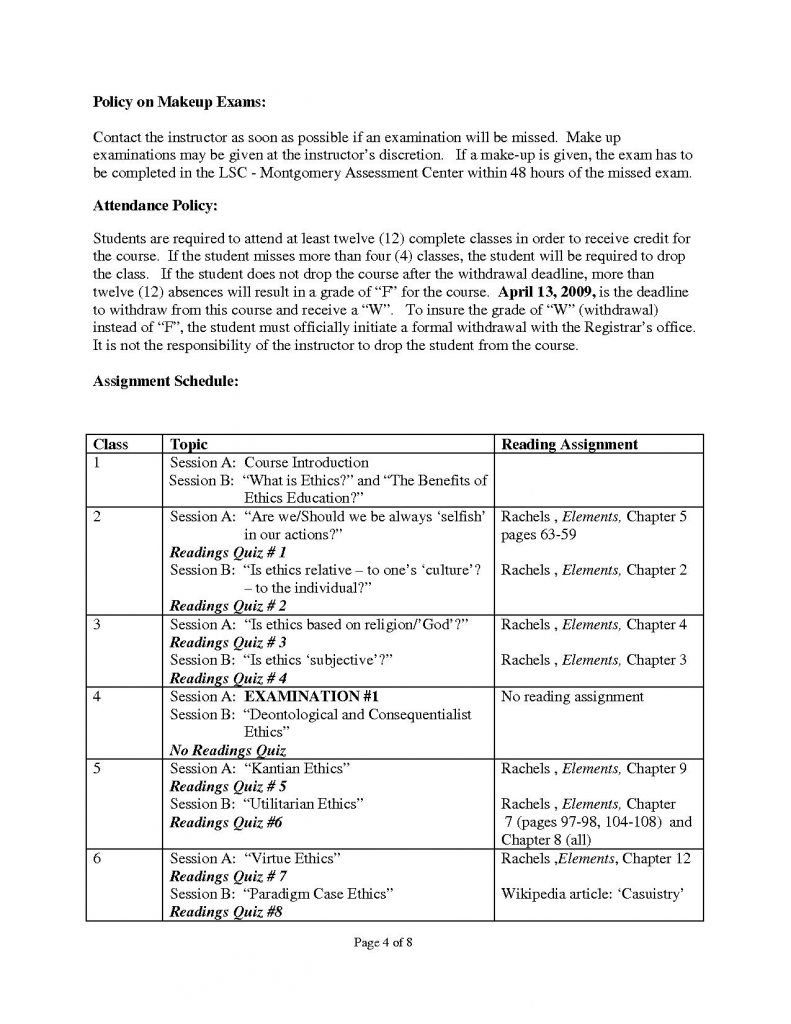
Whoohoo! Congratulations! You’ve finished high school and now you’re ready for bigger and better things. You’ve been accepted to your dream school and you have high hopes for starting your life off with a bang! You’ve applied around, been accepted, but what comes next?
Going back to school can be somewhat intimidating whether you’re attending a university for the first time or returning as a senior.
At schools where the majority of the students are Latter-day Saints, things operate a little differently. There isn’t much of a party scene, (unless it’s going to Sammy’s with your roommates or Family Home Evening group), and most students are good-natured.
But that doesn’t mean that finding housing or knowing where the best places to buy groceries is any easier. In this back to School guide, you will discover everything from where to find the best prices on books to how to sign up for Institute.
1. Getting Started
Most universities will want to know what classes you plan on taking soon after you’re accepted into their school, so signing up for classes as soon as possible is a must. As an incoming freshman, this can be really nerve-racking. But really, there’s no need to fear.
*Side Note for Mormon Students*
Before we get to that, let me add this: as Mormons, we’re held to different expectations than those who aren’t. As you try to figure out what you’ll enjoy for the rest of your life, allow me to remind you of what the prophets have said concerning preparing for your future.
Many of the representatives of The Church of Jesus Christ of Latter-day Saints have advised the young adults within the Church to consider their roles within the family. Men of the Priesthood are encouraged to provide for the family, and women are equally encouraged to fulfill their role within the home and raise a family.
I know there’s been a lot of controversy over this, but ladies: chill out. Major in whatever you feel right doing, (I advise both men and women to pray about their major first), but remember the role you have within the home. Financial struggles may occur when you start your family, but if you have any questions further regarding this topic, please read the words of our prophets.
-Choosing a Major
If you have an idea of what you want your major to be, consider this first: think about the majors (and eventually jobs) that are going to be needed in the future. If you won’t take my word for it, perhaps you’ll take Forbes. You may have declared your major with the application form you filled out when you first applied.
If not, call your school’s academic office: BYU, BYU-Idaho, Southern Virginia University, and BYU-Hawaii.
-No Major? No problem.
If you haven’t decided on a major, you probably feel like this:

But it’s really no big deal. Focus first on taking your core or foundation classes, and most are required unless you’ve taken AP or dual-enrollment courses in which you’ve gained college credit. Also, be sure to check out your university’s website to see what majors and minors they offer.
-A Note for the Upperclassmen
For those seasoned veterans that already have ample experience with collegiate academics, you may consider checking out your graduation plan. This will help organize your courses for your major and plan out other graduation requirements.
If your university doesn’t offer an online program such as those provided below, make sure to contact your school’s academic advising center or meet with your student adviser to check on your graduation status.
BYU Students: MyMAP
BYU-Idaho Pupils: GradPlan
(Special Note for Southern Virginia University students: there really isn’t a program set up like what BYU and BYU-Idaho have. Call the registrar office, and they’ll be more than willing to help you set up your classes for your first semester.)
Rate My Professor
High school dynamics are very different when it comes to college. There’s usually a universal fear when the school year starts again concerning how your teachers might be, and secretly you’re hoping that they’ll be effective and understanding with their teaching methods. As you come into the collegiate world that fear is significantly reduced.
As you plan your class schedule ahead of time you’ll be able to sign up for classes with the best instructor possible for that class. With RateMyProfessors.com, you’ll have the option to search for your teacher’s name and sort through the results based on the universities available. I encourage you to search through the reviews and discern which professor may be right for you.
2. Funding Your Education

Paying for your education can be a challenge, but whether you are a working student, have a rich grandmother, are a national sports star, or any other case, you may want to contemplate what I’ve written in these next few lines:
-Working Students: I’m glad that you’re paying for college with your hard work, but not all jobs allow their employees to have Sundays off. Also consider your Church duties, such as paying tithing, Visiting or Home Teaching, or any other calling you may have.
-Full-Ride Scholarship Receivers: Congrats on that, by the way. But what if something comes up? Do you have a plan? Check out your university’s financial aid section or talk to your financial adviser concerning any type of circumstance as well as if you qualify for loans.
-Those Under Any Other Circumstance: please recognize that not every plan is flawless. Have a back-up plan if things end up going south.
Whatever your situation may be, don’t lose hope. Consider picking up a job near your university or applying for student loans. The most common method to apply for loans is through the FAFSA, but you may also consider taking out a loan at your local bank or credit union. In any case, talk to your university’s financial office and ask about upcoming due dates and other requirements.
If you’re planning on attending a Church-oriented university, check out the links below.
Southern Virginia University Financial Aid
-Budgeting
When it comes to finances the resources available to college students seem endless. Many banks are probably sending you letter after letter advertising different credit cards or what types of loans they offer. But it doesn’t simply end there.
Thousands of websites offer different methods to help you start budgeting without signing any contracts or agreements. Pinterest, for one, allows you to search through the options that their users have created. A few examples of those are Envelope Budgeting, Money Mistakes, and Money Saving Habits.
All of the advice offered through these sites is excellent and will guarantee helping you save and divide your funds, making sure that you’ll have enough to pay your tithing, student loans, and have enough for groceries.
3. Connect with the School
There are many ways to connect with your university if it’s your first time attending there. Most colleges update their websites weekly if not daily, so even the homepage is a great place to start. You can also try to find your university’s page on Facebook or Twitter to receive news on upcoming events.
-Scheduling a Tour
Also, if you have the opportunity to visit your university, I would strongly recommend it. The visit will give you an idea of how the university works and where your classes are.
All of the schools, like most universities, will usually be more than happy to give you a tour of the school and provide additional resources to help you get started and involved in activities.
BYU Scholars: Tours
BYU-Idaho Academicians: Tours
BYU-Hawaii: Tours
Southern Virginia University: Tours
-Setting Up and Using Your University Account
As you are applying to your choice university or even after you’ve been admitted, it’s important for you to set up your student account and email. At BYU, BYU-Idaho, BYU-Hawaii, and LDS Business College you’ll set up your student username, account, and password through the BeSmart application process.
For every other university, you’ll be able to set up your account on your university’s website. The links to do so should be found under the Admissions or Registration tabs.
If you have any questions or frustrations regarding your account setup, be sure to contact your universities Admissions or Registration office.
4. Housing

Applying for housing can be a challenge due to the variety of options. Single or shared rooms? Furnished or unfurnished? Pool and gym available? How close to the campus and Temple is it?
Am I right?
-Dorm vs. Apartment
To begin your search, you may want to look at reviews on popular search engines or by receiving recommendations from your friends and acquaintances for either an apartment or a dormitory . In my personal experience, the best places to apply at are off-campus, though this may not be for everyone.
If you’re attending BYU, BYU-Idaho, or Southern Virginia University, check out these links. If you’re attending school elsewhere, check out the ApartmentRatings website to see if housing is available in your area.
-Unconventional Lodging
For those of you who are living with a friend or relative off-campus, be sure to time how long the walk may take you to campus, or schedule a time when they can drop you off or a time when you can borrow their car. You should know, if you do drive you will usually need to buy a campus parking pass.
-Roommates
There are always those two or three people that pop into your head when you start thinking about roommates. They want to room together, party together, have sleepovers, share everything, and of course brag about how they’re rooming with each other. It’s hard not to feel jealous as it seems they have every social event taken care of by simply rooming with their BFF.
But let me tell you something: they don’t.
I was advised early on in my collegiate career about rooming with my best friend, as the fun we had together wouldn’t last.
If you have someone in mind that you want to room with, you may want to ask yourself (and the other person) a few questions before you make the final decision:
-Are you willing to share kitchen utensils, food, cleaning supplies, etc.?
-What time do you normally go to bed?
-Do you work on homework with music or other noise playing?
-Do you have any unusual quirks I should know about?
-Are you willing to clean or help clean for room checks?
-Are you a tidy person?
-What’s your shower schedule?
-What’s your school schedule?
If you think of any other questions, feel free to write them down and ask your potential roommate(s).
Just make sure that you pick a good one.

-Clean Checks
Cleaning checks, (or otherwise called “room checks”) are the weekly or biweekly cleaning analysis-es of your room or apartment. They are usually conducted by your apartment manager or RA (resident assistant) to make sure that none of your roommates have purchased animals and to make sure that everyone has participated in cleaning.
Your manager(s) or RA will usually have a list available on what is being checked. From personal experience, it has seemed that clean checks are easier to pass if you live off-campus rather than on-campus, though it depends on how strict your manager or RA is.
As you are participating in college life, be sure that everyone in your apartment is participating in cleaning not only for clean checks, but often enough throughout the week; this includes your participation as well.
For cleaning and DIY room hacks, be sure to check out Buzzfeed and Pinterest searches, as these websites provide a lot of creative, cheap, and easy ideas for your room or apartment.
-Laundry
I know you’re probably used to doing your own laundry or having your mom do to your laundry, but at college you won’t have the same luxuries. Goodbye to the days where you can do laundry for free and hello to the future, where you’ll have to budget in money for laundry. You’ll soon realize the struggle of not having enough quarters to do your next load and you’ll become a master at finding different stores or banks that will supply you with quarters.
And suddenly getting paid with one dollar bills and change won’t seem too bad.
When using your housing’s laundry facilities be sure to take better care of them than you would at your own home. Clean out the lint tray, don’t overload the washer or dryer, and sort your colors accordingly.
Now I’m sounding like your mother, aren’t I?

5. Academic Essentials

When preparing for school, you’ll need to cover all of the bases. Perhaps you’ll need a planner, a ruler, a calculator, or an iClicker for your classes. Also, if you have the chance, you may want to consider buying a printer that works with your laptop, as professors often require typed essays.
-Buying Books
Some schools will give you the option to buy your books on the university’s website soon after you register for classes. This is a fast and easy method, but it may not always be the cheapest. You can search for better prices on Amazon, Chegg, AbeBooks, and ValoreBooks as they all offer a wide variety of textbooks.
Trust me, buying books online really isn’t THAT bad…

-Creating a Schedule
Creating a school schedule is vital before starting your classes. It’ll help you organize your class schedule and see if you’ve scheduled any classes during the same time. But be sure to maintain your schedule, as it can be a visual reminder for what you may have planned within the coming days and weeks.
For the first few weeks you may consider writing out your class schedule, such as the building name, classroom number, time, and professor. This will help you commit to memory where your classes are and which teachers you have at different times.
Most return missionaries like to stick with Return Missionary planners as they are familiar and bring back fond memories. But they also provide RM’s stability as they can plan events hourly.
But choose a planner that works best for you and what your schedule may be like. If you tend to be busy, an hourly planner may work best for you. If your schedule is a little more relaxed, perhaps you may enjoy a weekly or monthly planner.

-Classroom Kinetics
Attending a Mormon university has a very different aura than most other universities. For instance, most classes start with a prayer and sometimes a song. LDS universities will also try to exemplify our morals and standards through the students by enforcing a dress and conduct code.
Both the dress and conduct code are expected to be upheld within the classroom. Remember that time you may have snapped at your high school teacher? Yeah, that probably won’t be tolerated at your university.
Your professors have worked hard earning their Masters’ and Doctorate degrees and try to have their students thrive throughout their college experience. The professors at BYU-Idaho have a temple recommend and are required to keep and maintain the values if they are to continue to teach at that university.
Other teachers at Mormon universities will sometimes tie in their testimonies to their lesson or segue back to the Gospel in some way. If you’re taking an art, humanities, anthropology, history, psychology, sociology, or literature class, your professor may make a note of the topics they may be covering throughout the semester if the topics involve any type of nudity, racy, or controversial topics.
–Teacher/Student Relations
The relations that you hold with your teachers will be very different in college than they were in high school. Why? Because you’ll find that your professors will be actually kind of cool. As you respect them, they’ll usually reciprocate the respect.
Most teachers are understanding if you have a field trip, family or religious emergency, (like if your FHE sister fell down the stairs and broke her leg), or if you can’t attend class due to an illness. It’s a good idea in these circumstances to send them an email with your name and student information and why you may have/will miss class. This will allow them to assign you any make up work that you need to maintain your class grade.
If your class is in a lecture hall, it may be more difficult to establish close relations with your professor, but that doesn’t mean you shouldn’t try. Remember that your teachers are just like you: they want to be respected, taken seriously, and remembered as being human. They don’t want to be your enemy, so why shouldn’t they be your friend?

–School Resources
I think you’d be surprised by how awesome your university really is. So many schools have incredible resources available for their students for free.
For example. BYU-Idaho allows their students and faculty to download Microsoft Office for free. Other resources may include coupons to nearby restaurant chains or locally owned stores, free research resources such as EbscoHost, DVD’s and books through the school’s library, and tutoring and language centers.
A lot of these free resources are also available through various clubs or programs being held throughout the academic year. The clubs usually advertise what they offer through the university newspaper, website, or posters around campus.
Some universities offer unique resources to their students simply for enrolling. To check out more university freebies, click here.
6. Get Involved With Other Mormons
If you’re attending a non-LDS university, finding other students that share your faith can cause some serious anxiety. You may not even know where to begin. But if you want to be involved with other Mormon students who are experiencing the same stresses, there are resources available to help you.
-Finding Church Buildings
To find a church building or Stake Center nearby, LDS.org has created a virtual map of buildings near you. You can also use the building and scheduling page that LDS.org has also compiled to look for Sacrament sessions.
If you need a ride, contact one of the bishops of the wards that meet in the building and they’ll be able to help you through the Relief Society or Elder Quorum’s president.
-Transferring Church Records and Participating in Activities
Once you’ve attended the meetings, you’ll want to have your Church records transferred to your new ward and find out about some of the upcoming activities that your ward is holding, (Family Home Evening, service projects, temple trips, etc.)
-Institute
Also keep in mind that Institute is a fabulous way of filling in any spiritual gaps that you may be experiencing. Institute teachers may want their future students to sign up before the class starts, but most will still accept students after Institute has already begun. To sign up or check to see if Institute is offered in your area, refer to the links below.
Southern Virginia University Institute Sign Up
Check here for Institute classes offered around the world
7. Collegiate Culture

Alright, so you’re pumped to get in the college scene, right?!

…Okay, so maybe not so much. But in the first few days before you start classes, most universities offer a tour for new and incoming students during the day, and that evening there’s usually a kickoff party for students to have fun and get to know each other. Be sure to check your university’s calendar to see when it may be taking place.
-Dating Dynamics
Within Mormon culture: this is a big deal. It should be noted, though, that dating is different at every university. For example, at BYU-Idaho students (though many date and marry) struggle with getting involved in the dating scene and it could be due to a variety of reasons. At BYU Provo, though, many are considered “active” daters even if they hadn’t dated much before or in high school.

At non-LDS universities dating isn’t considered as vital to the college life as it is within Mormon culture. It does happen, though, and there are many who consider themselves ready to start meeting new people or even starting a relationship. If you’re crushing but nervous about asking: don’t be. College is the place to take chances, and you’ll never know what you may be missing out on until you at least try.
-Friday Nights
The day before the weekend is considered the holiest and most sacred of weekly holidays. Yeah, it’s treated like a holiday and yes, you are expected to celebrate it with everyone. Within the collegiate culture you’re expected to work hard all week, but you’re also expected to rest from your weekly duties, and Friday night is the best time to get started.
If you’re interested in being in the social scene, or even just taking a break from your homework, talk with your roommates about possible activities that your group can participate in on Friday night. You may consider going to the movies, bowling, shopping, dinner, having a bonfire, hiking, camping, dancing, or even staying in and making cookies. The possibilities are endless.
-Free Classess
Most of the knowledge you may obtain in a class can be offered free through clubs, workshops or conferences. Many language, poetry, political, math, and science classes can be enhanced when attending clubs. Workshops offered on campus are a great resource as many offer how to make or improve your resume, hold mock presentations, and schedule career fairs. Remember to always take a look at the posters displayed on campus so that you won’t miss any opportunities.
-Making Friends
Remember the days when you could talk to anyone and almost instantly be their friend? Oh, how the times have changed. As you age making friends becomes more complicated. The complications could go on and on, but I’m not going to focus on that. Just know that body language and situational chemistry matter immensely in any form of relationship.
But be friendly! You never know what connections you might form.
-“There’s an App for That”
Info via BuzzFeed
Having a smartphone is great, but you may sometimes run out of ideas on what to use it for. Take advantage of what you pay for and optimize your college experience by checking out these apps:
ShopSavvy : Allows you to check and compare prices on different items simply by scanning the bar code.
Gilt: Receive coupons for great deals on men’s, women’s, and children’s clothing
FidMe: Stores all of your coupons and loyalty cards for easy, hassle-free convenience.
Toilet Finder: Allows you to find restrooms near you instantly.
Grocery Gadget: An easy way to document your grocery list and find the best prices.
Good Guide: An app that shows you how the product your buying impacts the Earth. Simply scan the bar code.
Amount: Will convert any unit of measurement into one that works for you. Use for money, weight and length measurements, and any other type of measurement you can think of.
Sleep Cycle: An app that will track your sleeping patterns and the deepest levels of sleep you reach during the night. Invaluable for late-night essayists.
Venmo: Make and share payments and transfer money with the ease of this app.
Waze: Accurately track traffic and change routes with Waze.
Wolfram Alpha: Convert and solve math problem, language translations, graphs, and science struggles. Trust me: you need this.
The Weather Channel: Accurate weather for mobile excursions.
Mirror: Check your teeth, fix your hair, and do your makeup all with accuracy.
FitBit: Keep yourself active with this fitness monitoring app.
Seamless: An app that will allow you to order out from anywhere. Don’t limit yourself to pizza and Chinese food.
iHandy Level: Hanging up pictures in your dorm? Keep them straight using this helpful app.
Super-Bright LED Flashlight: Drop something in your car? No worries! Find it using this flashlight app.
Yard-Sale Treasure Map: Find local and distant yard sales with just a touch.
-Call Your Mom
You may be off at school away from your parents, but that is no excuse not to keep in contact with them. Parents miss you and often want to know how you’re doing, who you’re dating, if you’re eating healthy, and how your classes are going. Make sure to call your parents at least once a week with the addition of sending them a letter every once in a while.

-Dress for Success
You may have been able to pull off the leggings and UGGs topped off with a NorthFace jacket in high school, but in college your fellow classmates will expect you to dress reasonably. This doesn’t mean that you’re required to wear a pencil skirt or a suit to your classes, but it also doesn’t mean that wearing pajamas to class is acceptable either.
Dress confidently with a clean and refined look, as you will find that people around you, such as your teachers, students, and faculty members have a reason to respect you simply because of how you appear. Just make sure that your attitude is as sweet as your style.

-Homework
Ugh! I know…the most dreaded topic in the world. Sometimes you feel like contracting a deadly, third-world disease than doing your homework. Trust me, I get it. But here’s the deal: as painful as homework may be in college, it’s actually not as bad in some ways than it was in high school. Here’s why:
In college homework is done very differently. The teacher will (for the most part) give you a syllabus, whether in hard-copy or online, that will explain what homework needs to be completed during the semester. For the first few weeks of classes, the syllabus layout and the homework due dates may be super confusing.
Allow me to explain: the first date listed on the syllabus may simply explain course objectives covered in class. The next class period after that will usually have what homework needs to be done for that date. Not after it. Be sure to do the homework listed for that date before the class period.

This will usually be the pattern for most college homework dynamics.
For BYU-Idaho students: the homework strategy listed above may apply to you in some circumstances, but for the majority of your collegiate career at BYU-Idaho, homework will be posted by your teachers on ILearn, which you can access through your student account online. All the information concerning your assignments can be found on ILearn, in your student email, or through your professor.
Another important aspect of university-grade homework is the communication between you and your teachers. If homework is set on a certain due date, professors will usually be lenient so long as you contact them before the date it is due. Whether you have a field trip, an illness, or simply being out of town, make sure you contact them prior to the day missed.
8. Feeding Yourself Like a Pro

Buying groceries on your own for the first time can be a struggle, especially when you realize that you need more to eat than just Totino’s Pizza Rolls and Gatorade. But finding the best place to buy groceries is the first main challenge. Most often the stores that are closest to the university have the highest prices.
Best prices:
BYU: Walmart, Winco, Macey’s, and Smith’s
BYU-Hawaii: Foodland and Safeway
When buying and planning your meals for the next few weeks, be sure you have a balance. That means that you have to buy fruits, vegetables, and protein, because everyone knows that companies don’t make PediaSure for adults.
Yeah, I went there.
-The Freshman Fifteen
…And yes, I’m going here, too. For those of you who don’t know what the Freshman Fifteen is, let’s just say it’s a significant amount of weight gained or lost during your Freshman year of college. And it isn’t limited to fifteen pounds. The most common way the weight is gained is due to a lack of healthy eating. This is mostly because you’ve probably never lived on your own. And though pizza may be tempting, a consistent diet of it may not help you look as tempting by the end of the semester.

But the Freshman Fifteen doesn’t just happen to those that haven’t lived away from home before. Significant weight changes may be due to anxiety, homesickness, or staying up late as you’re working on a project. All of these situations are very real and can happen to the best of us.
If you’re experiencing or fear that you may experience anxiety, no matter the severity, consult your doctor about your concerns and to get help, or contact your university’s health center as they may have counselors and therapists available for student use.
Night Owls: I know the temptation is real. Trust me. But if you’re craving something sugary, salty, or flavorful, consider something healthy. Also, you may be eating because you’re trying to stay awake, as food quickly becomes energy. If that’s the case: stop it. Your body is telling you that you need rest. Go to bed and set an alarm before doing so that you can wake up early and finish whatever you were working on the night before.
Weight loss is also a possible occurrence, though it is much rarer than weight gain. Weight loss may be caused from anxiety, stress, poor diet, lack of groceries, or a busy schedule. But all of these can be fixed. Talk to your doctor, college health center, financial supervisor, or pack a lunch if you plan on being busy. Weight loss can be a positive lifestyle change if it’s carefully monitored, but if you don’t need to lose weight I really wouldn’t recommend it.
9. Scheduling in Your R&R

Once you have everything figured out with your class schedule and buying books, it’s important to find some fun places to chill out with your roommates and friends. Go camping, have a bonfire on the beach, take advantage of different cultural spectacles and school productions. Most university activities are offered at free or discounted prices, so take advantage of them if you can!
-Cultural Centers
Whether you’re staying within the U.S. or traveling abroad, it’s important to realize that in any area that you may attend school, there’s still going to be a culture shock. Visiting local museums, activities, and cultural centers within the area may help reduce some of the stress of culture shock, as well as interviewing individuals who have lived in different areas before moving to the school’s location.
-National Parks
Visiting National Parks is also a fantastic way of getting to know your area, as it provides more of an opportunity to explore your environment. BYU-Idaho is approximately two hours away from Yellowstone National Park, BYU is crawling with hiking opportunities and geographic formations. BYU-Hawaii is full of volcanic activity as well as exotic flora and fauna, and Southern Virginia University sits in the second oldest state within our nation.
It doesn’t stop there, though. The planet that we live on is packed full of adventures, so get out there and explore!
-Volunteering
It may sound like work, but volunteering is an excellent way for students to connect with the school and the community. This service gives students the chance to help members and faculty of the university as well as the environment and those within the community. You will be recognized as a selfless and charitable individual, and make sure to keep track of your volunteer hours as it looks awesome on a resume.
-Staying In
Before you start fantasizing about Netflix and napping, let me remind you that there’s so much more to life than just spending your down time in those ways. Staying in can include making cookies, building blanket forts, playing Sardines or glow-in-the-dark activities. Order a pizza, watch a movie, or try that recipe on Pinterest that you’ve been dying to try.
-Going Out
College towns are notorious for holding crazy and fun activities, so make sure to enjoy them! Search for restaurants, bowling alleys, movie theaters, ice cream parlors, and other fantastic facilities that have been built for fun. Go paintballing, dress up for a fancy dinner, prepare for a bike ride, have a bonfire, or just explore the town! Even in smaller and more rural college towns there’s always something to do.
-University Sponsored Activities
Most university sponsored events are plays, comedy shows, forums, club activities, and sports events. The best news? Often students will gain admission through lowered prices or even free-of-charge.
I mean, who doesn’t enjoy free stuff?

Maaayyybbeee not complimentary bees, but college isn’t ALL work! So have fun!
Attending a university can be a fun and exciting experience if you make it so. You’ll learn things that you never would have speculated about otherwise, and you’ll make friends for the rest of your life. It isn’t high school; this is all about what you want to do for your future.
Are you excited yet? You should be, because you deserve it.







